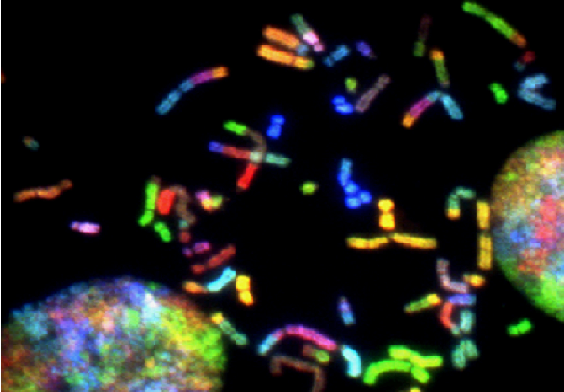April 04, 2022: “Positive results from the ETESIAN Phase IIb trial showed AZD8233 (an investigational antisense oligonucleotide [ASO], also known as ION449) met the primary endpoint at 50 mg with 73% (95% confidence interval [CI]: -77%, -68%) reduction in low-density lipoprotein cholesterol (LDL-C) levels, from baseline.
The trial also met the secondary endpoints, including significantly reducing proprotein convertase subtilisin/kexin type 9 (PCSK9) levels by 89% (95% CI: -91%, -86%), with sustained reductions maintained over the dosing intervals, and through to week 14 (6 weeks after last dose) at 50 mg dose.
Reduction of PCSK9 levels leads to increases in LDL receptor levels, which results in lower LDL-C levels in the bloodstream and reduces the risk of developing coronary heart disease.
AZD8233 was generally well-tolerated during the treatment duration.
Three dose levels of AZD8233 were evaluated (15mg, 50mg, 90mg), given monthly by subcutaneous injection over the 12 week dosing period.
All active arms demonstrated reductions in LDL-C and PCSK9 levels at week 12 compared to placebo.
The trial was conducted in patients with high-risk hypercholesterolemia on a high-dose statin.
Mene Pangalos, Executive Vice President, BioPharmaceuticals R&D, AstraZeneca, said: “Today, we are pleased to announce that ETESIAN Phase IIb for AZD8233 demonstrated a clear dose-response for both PCSK9 and LDL-C levels.
The results underscore AZD8233’s potential best-in-class efficacy profile, and supports its further development as a next generation PCSK9 inhibitor that is easily self-administered monthly.”
Brett Monia, CEO, Ionis Pharmaceuticals said: “The positive results of the ETESIAN study, along with the clinical studies to date, reinforces our confidence that ION449 (AZD8233) is a potential new treatment option that may be able to change the current standard of care for patients affected by hypercholesterolemia who have cardiovascular disease.”
More than half of patients with cardiovascular disease at high-risk of a major secondary event do not meet their LDL-C goals, despite taking a high-intensity statin.1-3 Elevated LDL-C is a key risk factor for cardiovascular disease, resulting in approximately 2.6 million deaths worldwide every year.4
AZD8233 is a next generation PCSK9 inhibitor with a unique mode of action and is the only PCSK9 ASO, which acts upstream of current PCSK9 inhibitors, targeting gene expression in the nucleus. It is designed to reduce blood cholesterol levels in patients with hypercholesterolemia by targeting PCSK9, an important regulator of LDL-C.
Results from the ETESIAN Phase IIb trial were presented on 4 April 2022 at the American College of Cardiology’s 71st Annual Scientific Session.
Results from the SOLANO Phase IIb trial assessing the safety, efficacy and tolerability of AZD8233 in patients with hypercholesterolemia is anticipated later in 2022.
Notes
Hypercholesterolemia
Hypercholesterolemia, or elevated LDL-C levels in the blood, is an important risk factor for cardiovascular disease, the leading cause of death worldwide.
There is a significant unmet medical need for stronger LDL-C lowering therapies in secondary prevention patients with approximately 50% who are not meeting their treatment goals despite taking a high-intensity statin.
One in six patients with LDL-C >100mg/dL will suffer a second major adverse cardiovascular event over approximately three years.
AZD8233
AZD8233 (also known as ION 449), dosed once monthly via subcutaneous administration, is a novel, investigational ASO therapy designed to reduce blood cholesterol levels in patients with hypercholesterolemia by inhibiting PCSK9 expression in the nucleus.
By reducing PCSK9 levels, AZD8233 is expected to increase the number of LDL receptors available to clear LDL from the blood, thereby lowering LDL-C levels.
ETESIAN
ETESIAN was a randomised, parallel-group, double-blind, placebo-controlled, dose-ranging Phase IIb study of AZD8233 in patients with hypercholesterolemia on a background of high-dose statin.
The primary endpoint was to assess the efficacy of AZD8233 across different dose levels versus placebo in reducing serum LDL-C levels.
Secondary endpoints included change in PCSK9 levels and the assessment of safety and tolerability of AZD8233.
The reduction from baseline to week 12 in LDL-C at the 15 mg and 90 mg monthly dose was 39% (95% CI: -48%, -29%) and 79% (95% CI: -83%, -76%), respectively.
The reduction from baseline to week 12 in PCSK9 levels at the 15 mg and 90 mg monthly dose was 58% (95% CI: -66, -48) and -94% (95% CI: -95, -92) respectively.
In the AZD8233 90 mg group, transient, moderate treatment-emergent elevations in liver enzyme levels occurred in some patients.
AstraZeneca in CVRM
Cardiovascular, Renal and Metabolism (CVRM), part of BioPharmaceuticals, forms one of AstraZeneca’s three disease areas and is a key growth driver for the Company.
By following the science to understand more clearly the underlying links between the heart, kidneys and pancreas, AstraZeneca is investing in a portfolio of medicines for organ protection and improving outcomes by slowing disease progression, reducing risks and tackling co-morbidities.
The Company’s ambition is to modify or halt the natural course of CVRM diseases and potentially regenerate organs and restore function, by continuing to deliver transformative science that improves treatment practices and CV health for millions of patients worldwide.”


